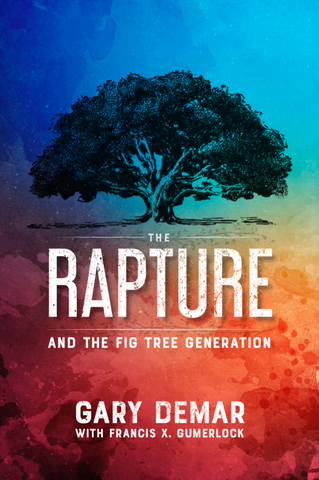Gary answers a listener question about the history of the “Rapture” and the vision in 1830 of a young girl named Margaret MacDonald.
Why is it that not a single sermon, address, or discussion in the book of Acts mentions the supposed rapture of the Church? Over a period of nearly 40 years, no one brings up this supposedly crucial prophetic event. There is no mention of an any-moment “rapture” of the Church, an antichrist who will make and then break a covenant with Israel, or the need for a rebuilt temple. What we do find are Jews selling their property (Acts 2:44–45; 4:34–37) because they had been warned by Jesus and Peter of the coming judgment against Jerusalem (2:40).
Paul was on trial “for the hope and resurrection of the dead” (23:6) not the rapture of the Church. Notice how the book of Acts ends. It’s about the kingdom of God, not the “rapture of the Church”:
And he stayed two full years in his own rented quarters and was welcoming all who came to him, preaching the kingdom of God and teaching concerning the Lord Jesus Christ with all openness, unhindered (28:30–31).
Compare the ending of Acts with the claim that “the rapture of the Church” is the next prophetic event in the history of redemption. Paul didn’t think so, and neither did any other New Testament writer. We know this because.
- There is no verse that says the Church will be taken to heaven prior to a seven-year period of time.
- There is no indication that there is a gap in time (now nearly 2000 years long and counting, according to all the rapture positions), between the 69th and 70th weeks of Daniel’s “70 weeks of years” (490 years) prophecy (Dan. 9:24–27).
- The Church is not something new in the New Testament. Jews were the first believers in Jesus as the Messiah (Acts 2:5; 5:11; 8:1–2). Believing Gentiles (non-Jewish nations) were grafted into an existing Israel congregation/assembly (ekklēsia) of believers as a fulfillment of prophecy: “The Scripture, foreseeing that God would justify the Gentiles by faith, preached the gospel beforehand to Abraham, saying, “ALL THE NATIONS WILL BE BLESSED IN YOU” (Gal. 2:8; Gen. 12:3).
- The first three chapters of Revelation do not describe the entire Church on earth in John’s day or in the distant future. “The Universal Church” is not described in Revelation 1–3 but seven churches in Asia Minor that existed in the first-century.
- The book of Revelation never uses the phrase “seven years” even though the number “seven” is used more than 50 times.
- John is not a type of the “rapture of the Church” anymore than Paul was when he was “caught up to the third heaven” (2 Cor. 12:2) or the two witnesses who experienced a physical resurrection from the dead (Rev. 11:11– 12). It’s obvious that neither they nor John, who was a “fellow-partaker in the tribulation” (1:9), escaped the time period of tribulation that took place while the temple in Jerusalem was still standing and destroyed a few years later (11:1–2).
- The rapture is said to be an event different from the Second Coming. The rapture is solidly dependent on the belief that there is a gap between the 69th and 70th weeks of Daniel’s 70 weeks of years prophecy, thus, supposedly keeping the redemptive program for Israel and a new entity called “the church” separate.
- Once the gap theory is refuted, all the rapture positions are null and void. A passage like 1 Thessalonians 4:13–18 goes back to being about the consummating coming of Jesus or something completely different but never a future rapture of the church.

The Rapture and the Fig Tree Generation
Since the national reestablishment of Israel in 1948, countless books and pamphlets have been written defending the doctrine assuring readers that it could happen at any moment. Some prophecy writers claimed the “rapture” would take place before 1988. We are far removed from that date. Where are we in God’s prophetic timetable?
Buy NowGary answers a listener question about the history of the “Rapture” and the vision in 1830 of a young girl named Margaret MacDonald. The Rapture and Dispensationalism itself have done an incredible job of influencing Christians to retreat from culture and being involved in societal issues since everything was supposedly coming to an end. Even music artists like Johnny Cash and Bob Dylan got in on the action.

